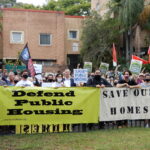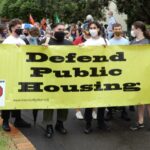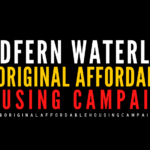Rental Bidding Will Soon Be Banned in NSW, But Will it Make a Difference?

The New South Government announced yesterday that the practice of allowing bids on rental properties will become an offence from 17 December 2022.
Currently, there is no prohibition against landlords or their agents inviting bids on properties listed for rent, or accepting offers above a listed rental price.
Under proposed amendments to the Property and Stock Agents Regulation 2014 (NSW), it will become mandatory to list the rental rate of any such property and those who contravene the rules will be subjected to hefty fines of up to $5,500 for individuals and $11,000 for companies.
The spin
The government’s press release asserts that making “the practice of rent bidding illegal… [will] improve affordability for those seeking rental accommodation amid high cost of living pressures.”
Premier Dominic Perrottet says the move will help prospective tenants secure housing in a tight rental property market in a fair way.
“It’s time to put an end to this practice and give more people security and certainty so they can plan for their future”, he stated.
“The search for a rental property is tough enough without it turning into a bidding war that pushes people beyond their comfort level.
“An advertised rental fee should be just that and we will take action to ensure rental bidding is outlawed.”
Minister for Fair Trading, Victor Dominello, agrees.
“It can be very distressing for prospective tenants who have submitted a rental application only to be told to increase their offer to improve their prospects of securing a property,” he remarked.
“From this weekend, agents will be prohibited from inducing a prospective tenant to offer an amount higher than that advertised for the property.
“Further, real estate agents cannot advertise a property unless it specifies the rent payable for the property.”
Broad support
The new rules have been welcomed by the head of the state’s Tenants’ Union, the executive director of advocacy organisation Better Renting as well as Greens’ housing spokesperson, Jenny Leong and opposition leader, Chris Minns.
Each have recognised the dire state of the rental market in New South Wales and stated to the effect that prohibiting rental bidding is a step in the right direction.
Will it make a difference?
But while the move has been a popular one for which the state government has been lauded, it ignores the underlying issue: that the primary reason for the unaffordability of rental properties is there are simply not enough of them on the market.
For his part, opposition leader Chris Minns has promised that, “If we win the election, Labor will introduce a portable bond scheme, we will establish a rental commissioner in NSW, and we will end the idea of secret bidding on properties”.
No one, however, has put forward a plan to increase the number of rental and government housing properties on the market.
Quite the opposite; successive state governments have been systematically selling-off public housing, as well as tightening the rules for those who seek such housing and even evicting existing tenants deemed to be of bad character; ultimately making it more difficult for our lowest income earners to have a roof over their heads and forcing them onto an already overcrowded market of private renters.
And while the forthcoming ban on rental bidding is likely to deter landlords and their agents from accepting bids above a listed price, there appears to be nothing preventing the situation where they might accept, for example, six months rent in advance; whereby the wealthiest (or perhaps most desperate) renters will continue to have an advantage.
The ban could have a number of other unintended consequences, including that rental rates could simply be set higher, or that prospective renters who appear to be ‘undesirable’, such as members of minority groups, could be overlooked by owners without recourse to other avenues (such as a higher bid) to secure a property.
Taking a further step back, it should be recognised that those seeking rental properties are not normally the most financially well-off in our society – many are indeed doing it tough in the present economic environment, and governments should be looking to expand the availability of public and rental accommodation rather than pursuing quick-fix, populist, band-aid measures that ignore the fundamental problem.






